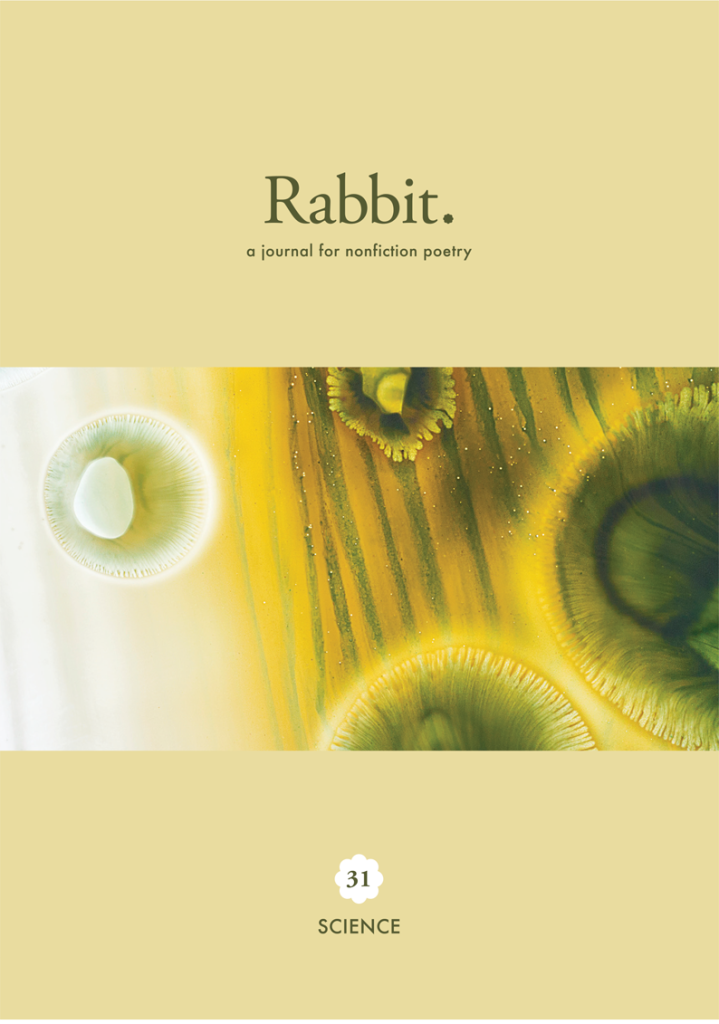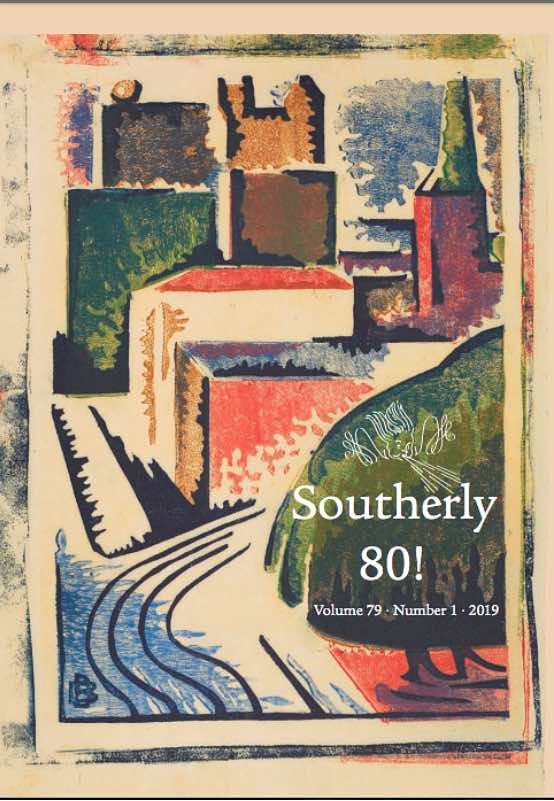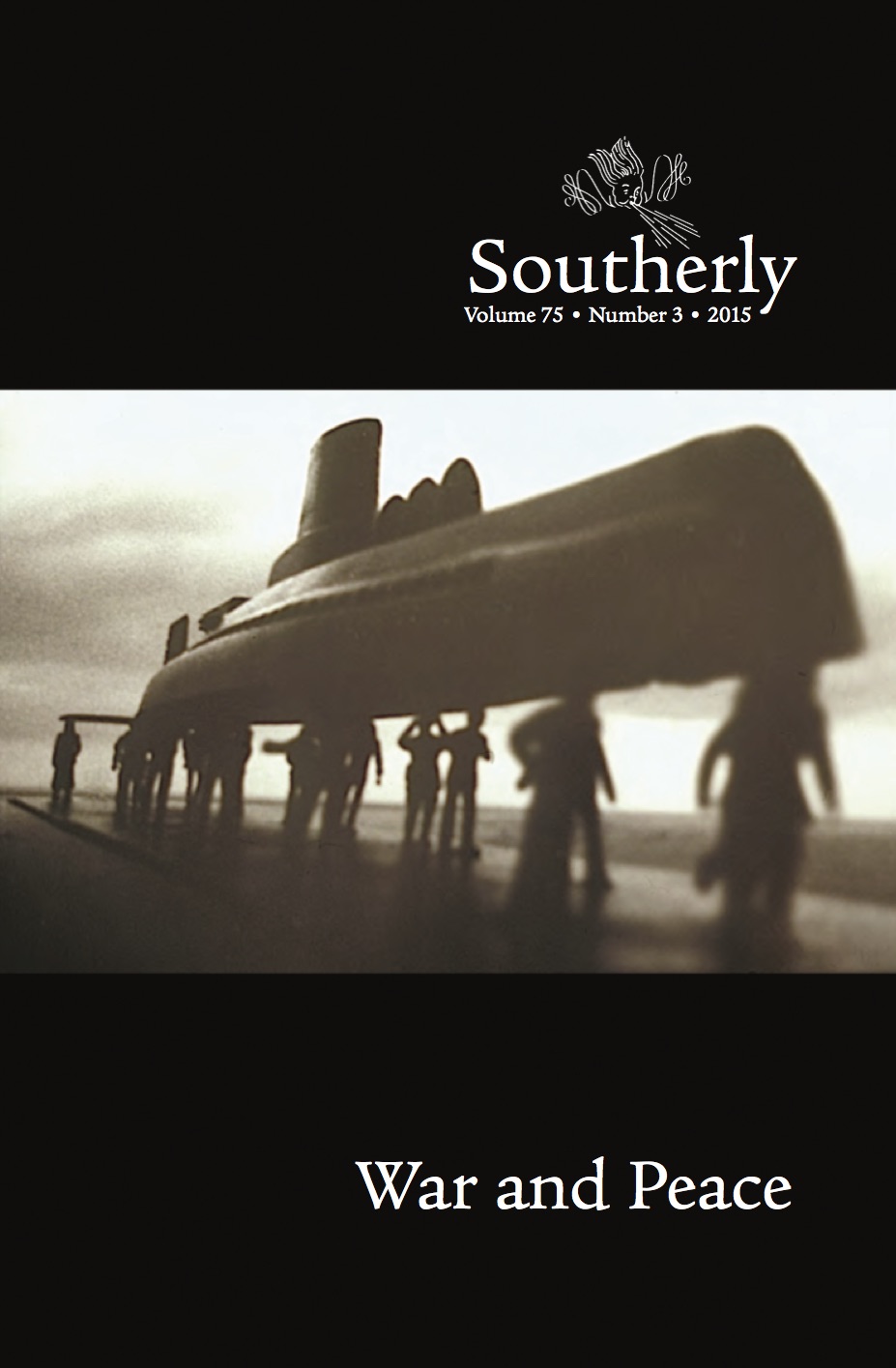I’m perpetually behind in my journal reading. Let’s see if my new approach of focusing on page 75 works for journals as well as for books.
Alexandra Christie (editor), Heat Series 3 Nº 4 (Giramondo 2022)
I’m glad Heat is back, and I love the slender elegance of Series 3, but this issue didn’t thrill me. More than the three previous issues, it feels like a sampler: a selection of pieces that are short enough not to be a bother if not to your taste, but to make you want more if they are.
I’m sorry to say that most of them weren’t to my taste this time. In the show-me-more category were:
- Nine pages of gorgeous photographs from the series ‘Trees and Fences’ by Yanni Florence
- Four poems by each of Ella Jeffery and Ella Skilbeck-Porter
- Amy Leach’s celebration of the unpredictable, ‘Amen to Nonsense’, which is available online.
Page 75 falls part way into the Amy Leach piece. On this page the writer is imagining that the present moment is already in the distant past:
Presidents had succeeded presidents, screeds had succeeded screeds, people trying their damnedest had given way to other people trying their damnedest. Some things are up for grabs, like jobs and dollars and votes, and are worth trying one’s damnedest for, and some things are not, like time and the moon and the stars. The Bible was always saying to ‘lift up your eyes’, maybe because when we lifted our eyes we remembered that not everything was up for grabs. (When they named ages they usually named them after grabbable things, like iron, stone, bronze, information, etc., not ungrabbable things like the moon and the stars.)
This interplay of whimsy and metaphysics moves on to musings on reincarnation, the importance of the notes not played in music, astronomy, and more, arriving at a reformulation of Keats: ‘”Beauty is Nonsense, Nonsense beauty.”– that is all / Ye know on earth, and all ye need to know.’ It’s fun and thought-provoking. Sadly, it’s followed by several pages of, well, tediously quirky Glossary. It did leave me wondering about Heat‘s editorial policy: assuming that there are plenty of Australians writing essays at least as interesting as this, why give valuable space to someone with no perceivable Australian connection, whose work, according to her brief bio, is already available in Best American Essays and similar places? Having said that, I’m looking forward to the article by the German writer Jenny Erpenbeck in issue Nº 5.
Evelyn Araluen and Jonathan Dunk (editors), Overland 246 (Autumn 2022)
(Much of the content is online at overland.org.au, and I’ve included links)
The lead essay in this Overland is ‘That’s what drives us to fight’: labour, wilderness and the environment in Australia‘ by Jeff Sparrow. It’s a solid, possibly old-fashioned Marxist account of the relationship between settlers and First Nations people in Australia. It starts with the way some environmentalist rhetoric about preserving ‘wilderness’ erases First Nations history and the resulting question, ‘How can we defend the natural world, while still recognising Indigenous history?’ and proceeds to a discussion of the frontier wars that I can’t recommend strongly enough as a supplement to Rachel Perkins’s epochal television series, The Australian Wars.
There’s a lot else, including two short stories: ‘Home sweet slaughterhouse‘ a interesting take by Greg Page on the defacement of colonial statuary; and ‘New face in the fight against poverty‘ a futuristic satire of brand philanthropy by Andy McQuestin.
Page 75 is the tail end of a 13-page section given over to competition results. The section begins with ‘The labeller‘ by Saraid Taylor, a story of unprincipled opportunism in elite sports, which won the Neilma Sidney Short Story Prize. (The runners-up are on the Overland web site, here and here.) The Judith Wright Poetry Prize 2021 follows, first with the generous and lucid Judges Report by Toby Fitch, Keri Glastonbury and Grace Yee, then the winner, an excellent prose poem by Ender Başkan titled ‘are you ready poem’, and the two runners-up, one of which, on Page 75, is ‘stones‘ by Lily Rupcic, described well by the judges as ‘a condensed evocation of a mother’s illness and despair’. In the context of a journal most of whose contents have the feel of a battlefield, these sixteen lines offer a still, jewel-like reminder of basic human courage and connection.
Melissa Hardie and Kate Lilley (special issue editors), Southerly 79.3: The Way We Live Now (2022)
Described in the editors’ introduction as a ‘collection of pandemic inspired and pandemic-adjacent writing’, this is a digital issue, available free to download or read online – or, if you’re even more luddite than I am, to print off and read on paper.
It’s a rich 160+ pages, with 30 poems, three short stories, five review articles, and 10 pieces collected under the general heading ‘Essays and Memoirs’. Listed among the poetry on the Contents page is ‘Lost Matchstick Sonnets’, a series of clever and beautiful photos by Catherine Vidler featuring 14 wooden matches – the cover image on the left is part of the series.
Strikingly, all but one of the prose pieces, excluding reviews, were by women or gender non-conforming people.
As usual with me and Southerly, I skimmed some pieces: two pieces in dauntingly academic language, most of the reviews, some poems. If you want to dip in (remember, it’s free to access or download), you’re very likely to find something to delight or enlighten. To name a random few:
- Claire Aman, ‘If There Are Zebra Finches’ (joint winner of the 2019 David Harold Tribe Award for Fiction), a clear, resonant short story set in an Australian desert
- Sophia Small, ‘To Autumn Again’, which starts with a group of high school students laughing at extreme emotion in a movie they are being shown at school, and then claws back the ground for intense emotion
- Eileen Chong, ‘Reason’, a starling evocation of a parent-child relationship over time, in a very few lines
- Toby Fitch, ‘New Chronic Logics’, complex evocation of lockdown
- Kate Lilley, ‘Commons, a kind of love poem
- Beth Spencer, ‘chronic kitty covid city’, a lockdown poem that’s both funny and true (of many of us)
- Alison Whittaker, ‘the poets are about to lie to you’, a terrific poem about responses to Covid lockdowns, excellent because one suspects that Whittaker is one of the lying poets as well as their denouncer.
Page 75 falls in the middle of the reviews section, on the final page of Vanessa Berry’s ‘From Catastrophe’, a review of Danielle Celermajer’s Summertime, a memoir of the bushfires of 2019–2020. .
Summertime is among those works of environmental life writing that expands the personal across time and space, where the writer is at once the perceiver of her thoughts and world, and a figure through which the reader can access collective feeling, knowledge and accountability. From the experience of the fire summer it sets out a generous and unflinching philosophy, unfolding from the most urgent question of our time: how to sustain life and future for all beings on this earth?
This has the opacity of much academic writing – I don’t know what it means, for example to expand the personal across time and space, though I’m pretty sure I would if I was well enough read in current academic writing – but the second sentence in that quote brings into sharp focus one key element of the way we live now, the challenge created by the climate emergency, and which most of us spend most of our time trying to ignore.
A tiny personal complaint: on page 144 the first name of Indigenous artist Jonathan Jones is misspelled. On behalf of all Jonathans I plead for special attention from proofreaders.








